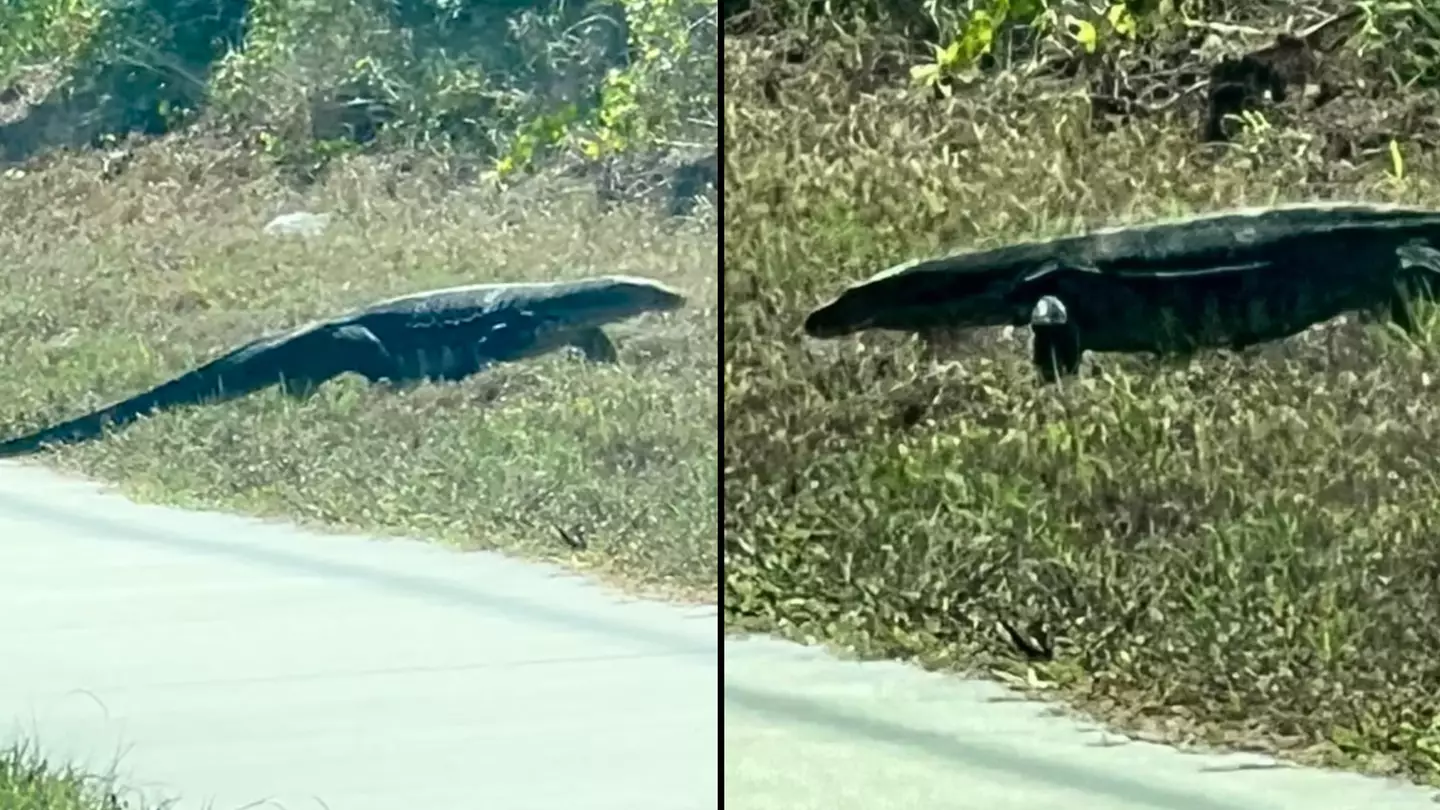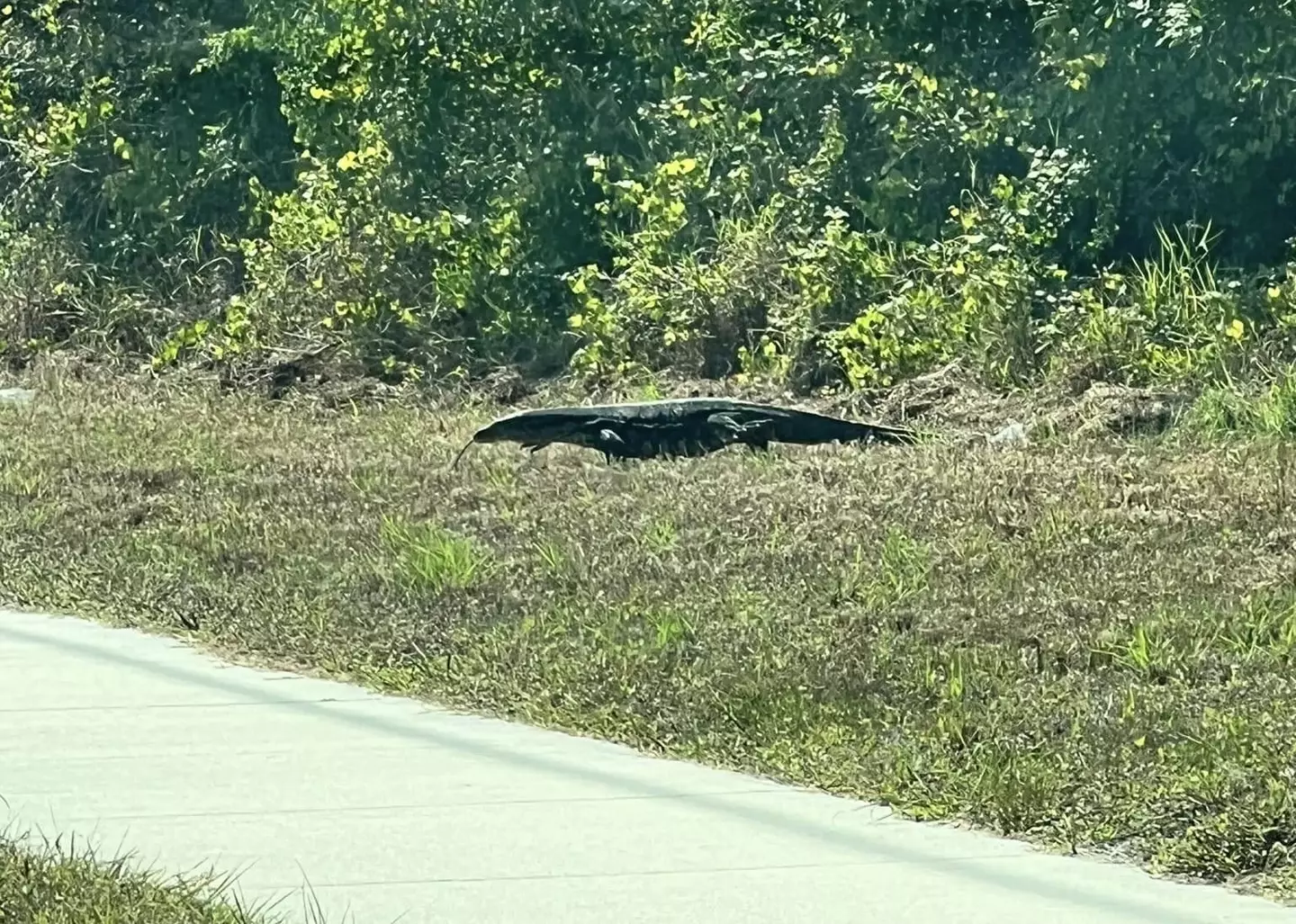
If you're in Florida and you see a massive reptile scuttling about, it's perfectly reasonable for your brain to clock it as an alligator.
That's what Renee Aland thought when she was out for a drive with her daughter Zoey Marzonie, and they spotted the large lizard lurking by the side of the road.
The mother and daughter found it noteworthy enough to snap some pictures and film the creature, as it caused Renee to do 'a double take'.
Her daughter offered to get closer and take the camera in for a better look, but her mum quickly cut her off, saying: "Nope, just stay in the car."
Advert
They filmed the lizard as it ambled back and forth and weighed up whether to cross over the road, though it ultimately decided not to.

In the video Renee said: "He’s huge. He’s just strutting across the road. He’s heading to the other side of the road."
"I look, and I see what I think is a gator," Renee told WBBH-TV.
"When we got closer, I looked, and I saw his tongue, lizard tongue coming out, and I was like, oh crap, that's not a gator.
"It was really cool, never seen anything like that before, but the concern is what it is doing to our native wildlife.
"Obviously, they’re pretty voracious eaters, so I can’t imagine they’re good for our ecosystem."
She ended up reporting the animal to the authorities, and the Florida Wildlife Commission thinks it could be an Asian Water Monitor, a kind of lizard which can grow to a pretty damn large size.

Monitor lizards can grow to be very long and it's not surprising that at first glance someone might confuse it for an alligator until they took a proper look.
As you might have guessed they're not native to Florida but they are sometimes kept as pets and if they break out or are released after getting too large then they'll be trying to survive in a new environment.
This huge lizard will be trying to prey on local wildlife, such as fish, frogs, snakes and rodents.
In turn, the only things that hunt them are saltwater crocodiles and us humans, who are the ones who occasionally keep them as pets, and as with any animal that grows quite large their owners may choose to get rid of them eventually.
They're generally not very threatening to humans, but if they feel cornered, they can attack, and their bites can cause severe injury, so it's often best to keep your distance.
Topics: Animals, Environment, US News